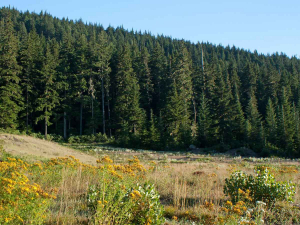ETS costs cut 66% for forest owners – McClay
Additional reductions to costs for forest owners in the Emissions Trading Scheme Registry (ETS) have been announced by the Government.
 New Zealand Rural Land Company has completed the purchase of forestry land in the Manawatu-Whanganui region.
New Zealand Rural Land Company has completed the purchase of forestry land in the Manawatu-Whanganui region.
New Zealand Rural Land Company (NZL) has completed the acquisition of a forestry estate located in the Manawatu-Whanganui region.
The estate comprises five individual properties with a total area of approximately 2,400ha, and was purchased at an acquisition cost of approximately $63 million.
The entire estate has been leased to New Zealand Forestry Leasing (NZFL) for a period of 20 years, with the first year’s payment being approximately $5m.
Co-founder and New Zealand Rural Land Management director Richard Milsom says the purchase was funded using a combination of debt and equity.
Debt was provided through an increase in borrowings from Rabobank of $25.2m.
“The equity component has been funded from the proceeds of NZL’s recent capital raise offer and from the proceeds of a $12m convertible note issued to an entity associated with NZFL.
“This forestry estate acquisition means NZL now owns 141,101ha of rural land with a 12.1 year weighted average lease term (by value), and 100% occupancy across eight tenants. It adds materially to the scale and diversity of NZL’s asset and tenant base,” says Milsom.
Rabobank regional head of sustainable finance for Australia & New Zealand Jurre Smits says the Rabobank green loan was provided to support NZL’s forestry acquisition and established a Green Financing Framework that will set out the eligible asset classes and how the proceeds from the loan will be used, managed and reported on, in line with the Asia Pacific Loan Market Association’s Green Loan Principles.
“Rabobank is proud to have partnered with NZL on this transaction as it contributes to climate change mitigation by protection and conservation of forestland, and therefore preserves the CO2 sequestering capability of the land,” Smits says.
“In addition, the green loan also supports improved biodiversity of the assets,” he says.
Fonterra’s impending exit from the Australian dairy industry is a major event but the story doesn’t change too much for farmers.
Expect greater collaboration between Massey University’s school of Agriculture and Environment and Ireland’s leading agriculture university, the University College of Dublin (UCD), in the future.
A partnership between Torere Macadamias Ltd and the Riddet Institute aims to unlock value from macadamia nuts while growing the next generation of Māori agribusiness researchers.
A new partnership between Dairy Women’s Network (DWN) and NZAgbiz aims to make evidence-based calf rearing practices accessible to all farm teams.
Despite some trying circumstances recently, the cherry season looks set to emerge on top of things.
Changed logos on shirts otherwise it will be business as usual when Fonterra’s consumer and related businesses are expected to change hands next month.